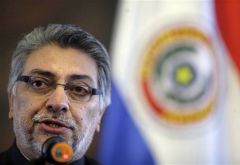By Sovereign Hager
Impunity Watch Reporter, South America
BRASILIA,Brazil-International human rights groups are vehemently opposing the Brazilian Supreme Court’s decision not to reinterpret a 1979 law giving amnesty to members of the former military government responsible for extrajudicial killings, torture, and rape. Instead, the Court held that such acts were political acts and therefore deserved amnesty.
While Argentine, Bolivia, Chile, Peru, and Uruguay have prosecuted individuals accused of human rights violations during military dictatorships, Brazil has not. Rights groups argue that the amnesty law puts Brazil in breach of conventional and customary international law that does not allow amnesty for crimes of torture and extrajudicial executions.
Tim Cahill of Amnesty International commented that “in a country that sees thousands of extra-judicial killings every year at the hands of security officials and where many more are tortured in police stations and prisons, this ruling clearly signals that in Brazil nobody is held responsible when the state kills and tortures its own citizens.”
Amnesty International also called on Brazil to come into conformity with the rulings of the Inter American Court of Human Rights, which has stressed that ” all amnesty provisions . . . designed to eliminate responsibility are inadmissible, because they are intended to prevent the investigation and punishment of those responsible for serious human rights violations such as torture, extrajudicial, summary, or arbitrary executions, and forced disappearance, all prohibited because they violate rights recognized by international human rights law.”
The Court voted in a 7-2 majority that the law should remain intact because it had been approved by society as a whole, including the bar association, armed forced, and political exiles. Thousands of people were imprisoned, tortured, or disappeared in Brazil under military rule form 1964-1985.
For more information, please see:
Amnesty International-Brazil Court Upholds Law that Protects Torturers-30 April 2010
AP-Brazil’s Top Court-Amnesty Law Will Not Change-30 April 2010
NY TIMES-Brazil: No Change to Amnesty Law-30 April 2010

